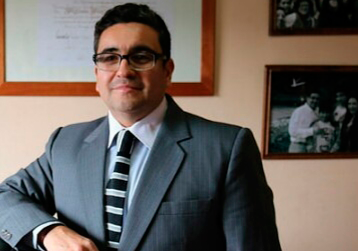
Is the creation of the crime of unfair administration of wealth justified in Chile, were there gaps in the criminal law treatment of the unfair administration of wealth of others in Chile, did the existing criminal law types before the entry into force of Law 21.121 respond satisfactorily to the need for protection of legal wealth, from the criminal policy perspective? Why did the Chilean legislator take so long to establish this new criminal law, did the Chilean legislator take advantage of experience, doctrine and international jurisprudence to establish a criminal law in accordance with current needs, and are there real differences between the criminal law established in Chile and that of Spain? These are some of the questions that this research attempted to answer.
7 november 2019
Title: Primer estudio comparado entre España y Chile del delito de administración desleal de patrimonio (Spanish for Frist Comparative Study between Spain and Chile on the unfair administration of wealth)
Author: Alejandro Chaparro Uribe
The Master’s Degree final project has been divided into four chapters. The first chapter provides a brief summary of the sociological, historical and political conditions, both national and international, which have allowed impunity for “white-collar” crimes to be maintained in Chile and which justify the emergence of this new type of criminal offence.
The second chapter studies, firstly, how the Chilean legal system has evolved in the area of economic crimes, how the unfair administration of wealth was dealt with before the new law came into force and what was the trajectory of its legislative processing. It then looks at the Chilean criminal type: the object of the crime with its particularities, the passive and active subjects, in order to continue with the iter criminis, the degree of participation required to be in the presence of the subject and the bankruptcy relations of the subject with other crimes. It ends with an analysis of the type, making some reflections on the subjective element of the crime, in particular the profit motive and fraud; as well as the amendments made by the Chilean Law 21.121 to Chilean Law 20.393, which enshrines the criminal liability of the legal person in Chile, particularly in relation to the incorporation of the criminal type in the catalogue of crimes that the company can incur, the sanctions and the determination of the applicable penalties for this type of person.
In the third chapter, the researcher deals with the regulation that the Spanish legislator has given to the crime of unfair administration of wealth. Firstly, a brief study is made of the legislative evolution of this type of criminal offence. Then the model used by the Spanish legislator to implement the offence of unfair administration of wealth in its legal system is analysed. An analysis of the different objective elements of the type is also carried out, then of the passive and active subject, All of this, to conclude with an analysis of the subjective elements of the latter, in particular of fraud and the desire to get rich.
In the fourth and last chapter of the research, a comparative analysis is made between both crimes, analysing the material sources that gave reason to the legal regulation of these illicit acts, and the model applied in both countries, the objective elements of the type, the subjective elements of both, are studied, to conclude with respect to the application of this type of criminal in the liability of legal persons. This research is the first comparative analysis between Spain and Chile with respect to the crime of unfair administration of wealth and the first to be carried out in depth in Chile for this type of crime, which was incorporated into the legal system of the southern country only in November 2018.













